The following is a reality check on the Ferry Pilot program the Council approved at our 23 June Meeting. Now, there is a long-winded introduction and I know some people don’t read the long-winded introductions. But it addresses the numerous complaints about the ‘arguing’ at our 9 June meeting so I hope you’ll read. If not, you can skip directly into the program.
Intro
Residents tell me all the time to “be calmer” and I have no idea what they’re talking about. I’ve certainly never deliberately attacked anyone. Or gotten visibly angry. I do get animated. I tell my version of ‘jokes’. I’m occasionally sarcastic as hell. But this always theatrics. It’s meant to be didactic. I’m trying to tell you, the audience, “Wake up! Pay attention to this. This is the important bit!”
Because after so many years watching our meetings I came to realise that almost no one was really listening. Most people have no idea what is really going on. So the meetings kinda drone on like the way me dad used to leave the TV running in the breakfast room. And unless there are markers to indicate “Wake up! This is important!” you’ll miss the stuff that really matters.
You can be too calm…
We started heading in the wrong direction a very long time ago. There have always been one or two councilmembers who tried to push back and reform our system. Their strategy was to always be as nice and friction-free as possible. They tried their guts out to be “cooperative”, even when there was no reciprocation. But by working so hard to be constantly “friendly”, I’m convinced that the public slept through a whole lot of bad. We’d have a meeting on some big construction project and people would not realise just how awful it was. People hate screaming. I get it. But most of us kinda need it otherwise they miss when something spectacularly wrong occurs.
One sentence…
So at this meeting, I limited any snippiness to one line, regarding the ferry. “This is insane.” And by being so gosh darned “nice” otherwise, afterwards I got several messages telling me how excited people are about the ferry and how glad they are to see the Council all on the same page!
That tells me it wasn’t just the poor audio quality that kept people from hearing. I’m sorry to say, but this is just further proof that when things are too “pleasant” people just don’t pay enough attention. Especially on issues like the ferry, which many of you want so much to believe in I need to be unambiguous.
I told you: This is insane. And here is why.
The program…

The Council voted to approve a sixty day pilot project (contract) using the sixty three passenger whale watching vessel Chilkat from Puget Sound Express.
It will initially have four sailings a day: from Wednesday through Sunday, from our guest moorage to Bell Harbor Marina.
10:00 am 11:00 am
12:00 pm 1:00 pm
2:00 pm 3:00 pm
4:00 pm 5:00 pm
1The initial fare price will be zero. You heard it here, folks. free, Free, FREE!
You’re welcome.
Concerns…
#1 Sunk costs
I want to point out that, in addition to the $975,000 the Council gave to the City Manager to play with at our 14 April Meeting, we have already sunk at least $200,000 in other costs into (cough) ‘researching’ this thing. Including at least these:
| Diedrich-RPM private (cough) demand study | $35,000 |
| Peter Philips Ferry consultant retainer ($3,000/mo) that will continue indefinitely. | $72,000 |
| Maritime Consulting Partners a second consultant hired to find the vendor, create the start-up systems (fare box, gangway, etc.), promote the program and. furnish the final performance analysis | $7,500 |
| Start up costs (docks, fareboxes, customer service, etc.) | $90,000 |
| TOTAL | $204,500 |
|---|
And none of that includes staff time, schmoozing, various reimbursed business lunches, etc.
and… if one actually reads the contract, take a look at page 30 where the actual commitment is not ($87,500 x 2 months.) It’s $470,000!
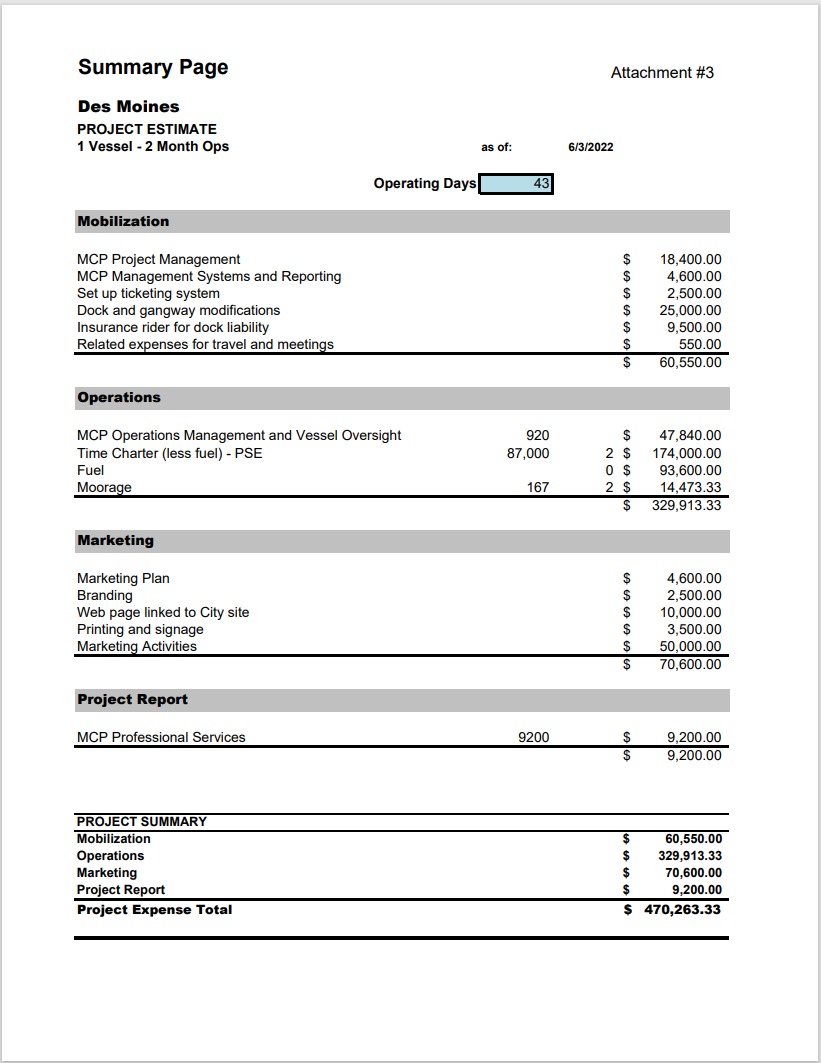
#2 Beta test?
The City Manager, and all my colleagues, referred to this sixty day program as a ‘beta test’. It’s only June but I can confidently announce that this will win the Inigo Montoya Award for 2022.

When software engineers build a large program, the first version that leaves the lab is an “alpha”. It (mostly) works, but the features are still being debated. It is not shown to the public because we’re not sure if the thing is even saleable. The ‘beta’ is a working version that is “feature complete.” We let a small group of ‘power users’ try it for the purpose of working out bugs, not to see if people like it and not for market testing. In fact, management discourages engineers from making changes because every time you do that, you run the risk of introducing new bugs. The nightmare scenario for a software company is a beta test where the users demand major feature changes. That scares investors. It signals that management might not have a good read on what will actually sell.
The contract requires us to pay $87,500 a month to the vendor to run this thing.
Some details on what you get for $87,500…
- No Monday or Tuesday.
- No commuter runs either in the morning or evening.
- The ‘test’ is being run in August and September, the most likely time for people to take a fun, free ride but the worst time to determine real ongoing demand.
- The City acknowledges it may run into significant challenges obtaining staff. Going so far as to consider hiring 3high school students to crew in lieu of shortages of vendor staff.
- For those of you unfamiliar with Bell Harbor Marina, it’s the home of the Port of Seattle on Bell Street and Alaskan Way. It’s an easy to walk to fun places like Pike Place. But it’s about a mile to Westlake Center. It’s about a mile to 4th Ave. It’s about a 20 minute walk to anywhere white collar people work. And it’s a serious bus ride to any blue collar jobs. Every try to get a bus off Alaskan Way to SODO? Goooooood luck. So after your leisurely whale-watching adventure (..er.. ‘commute’), an actual commuter should plan on the same amount of time for the rest of their journey. And maybe a bus fare. (True blue ferry riders might want to cut the middle man and simply apply for a job with the Port of Seattle.)
- And again for the cheap seats, the contract actually specifics $470,000!
So the City Manager, and my colleagues, were already talking about more ‘beta tests’ from September on to, you know, iron out some ‘details’. 😀 And just to be clear: any changes to those variables will come with additional costs TBD.
This is no “test” in any meaningful sense of the word.
#3 Revenue Potential
Another detail, which once again makes me think no one else actually reads the packet. The contract requires us to pay $87,500 a month to the vendor to run this thing four times a day, five days a week.
Pick an eventual fare price. (It won’t be free forever, Virginia, get real. 😀 ) Let’s keep it at $11 a ride since we’re a bunch o’ swell people who don’t want to gouge the public.
Now let’s do a quick bit o’ math, shall we?
62 seats x 7 or 8 sailings a day (depending on where she spends the night) sailings a day x 21.5 days x $11 a ride is…
$117,304.
At $11 a ride and 100% capacity we would make $29,804 every month. Sounds pretty good. Now add in $46,800/month in fuel.
Whoopsies! Absolute best case scenario? We lose $16,996/month.
OK, so I leave “showing my work” on the rest of this as an exercise for the reader. For now, my guesses are these:
- The break even fare for a five day, four sailing ferry is $16
- The break even fare for a five day, five sailing ferry is likely closer to $20.
- The break even fare for a seven day, five sailing ferry is probably $24
Which means that even if there is one hundred percent capacity at every sailing (no bad weather or mechanical or labour cancellations) the thing will still never pay for itself. It’s not that it won’t make a lot of money. It will never make any money. It will always need to be subsidised unless the fares are so high that the only commuters who will use it regularly are people who currently have enough money to pay to park downtown. Meaning almost exclusively white collar. The rest would be ‘occasionals’ people taking their gran down to Pike Place for a fun-filled day trip.
Or… and this was truly said at the meeting, “People on layover at Sea-Tac Airport would Uber over to our Marina, get on a ferry, go down to Bell Harbor and then come back to continue their journey to their final destination.”
Seriously?
#4 bait and switch
Given all the publicity from the first ‘test’ back in September, I think it’s reasonable to assume that everyone thought this ‘beta test’ might be comparable to the 178 seat Orca II, moored at Pier 57 (University–the Big Wheel.)

Stick with me here. On 14 April, the Council approved $975,000 for the City Manager to identify a vendor to do a second round of “testing.” I asked why that number and got no response. I think we all assumed that $975,000 was the cost of a boat similar to the Orca II.
He then comes back with the contract we saw for $290,000. What a bargain! But the Chilkat (capacity: 63) is one third the size of the Orca II and Bell Harbor is half a mile north.
Even more troubling for me is this. The contract is dated 25 May, which sounds reasonable. But here’s the reason it is so egregious when my colleagues do not examine the vouchers and the City obstructs me from so doing:
A quick review of the timing of the consultant fees makes it clear that the City had already identified the new vendor in February and likely settled on the new boat ($290,000) months before asking for $975,000.

![]() In other words, the City Manager likely knew when he came to the Council for $975,000 that he would not be using the boat from last fall or that vendor. But he did not tell the Council. In fact, they likely already knew the vendor they did want, and the boat and the cost of the sixty day ‘test’, which is $290,000.
In other words, the City Manager likely knew when he came to the Council for $975,000 that he would not be using the boat from last fall or that vendor. But he did not tell the Council. In fact, they likely already knew the vendor they did want, and the boat and the cost of the sixty day ‘test’, which is $290,000.
It is common practice for the City to keep negotiations under wraps. But this is beyond the pale. The City provided no information for the Council. They asked for $975,000 up front to perform a single test, but their real intent all along seems to be to have money ‘in the bank’ to do multiple tests.
So. Not. Cool.
#5 It misspends money
When you waste a dollar, you misspend two dollars. The dollar you should not have spent; and the dollar that could have been spent well.
This project needlessly takes money away from any number of important core programs. What programs are you concerned about?
- Roads?
- Parks?
- Public Safety?
- Housing?
- Human services?
- Airport noise and pollution?
All of us may reasonably disagree on which of those are of highest priority. But regardless, surely we can all agree that those are the core functions of the City and that a ferry is not. Every dollar that goes into a total money loser, is millions of dollars that will not be going towards those essential functions.
#6 The first hit is free
Since day one I have been asking for something very simple: A business plan. I have received none because there is none. The only possible justification would be if the service somehow drove some other money making businesses. Again, there is none. They are all ‘TBD’ because they do not exist.
The only thing I’ve ever read or heard is this, from the Waterland Blog:
“A passenger ferry could serve two purposes:
-
- Commuting to downtown Seattle (or other destinations like Tacoma).
- Tourism attraction that could serve as an “anchor” to a revitalized Des Moines Marina.
The ferry service will also be an essential component to regional emergency plans and regional resiliency plans as it is the closest harbor to the Kent Valley, our center of warehousing and manufacturing,” a study by diedrich-rpm said. “The Kent Valley is vulnerable to flooding in an earthquake or dam breach.”
No one boat can do all those things well. And I have heard no agency mention any willingness to pay Des Moines to keep the engine running on an emergency ferry. You know, for the impending Cascadia Megaquake.
Basically, the plan is to keep (cough) spending money ‘testing’ this thing until it becomes a permanent fixture. And as any successful drug dealer will tell you, the best way to sell something like this is to give it away in the beginning.
The City Manager is simply asking the public to believe that somehow a combination of a “ferry”, a “hotel”, a “farmers market”, an “SR3” (none of them money-makers) will somehow create some “magic” that brings in “tens of thousands of tourists.”
These are words from our Mayor in supporting the City’s offer to subsidise SR3 back in 2019:
It’s great about our eco-tourism. This alone is going to bring tens of thousands of people into our town. They’re going to eat at our restaurants. They’re going to get educated about our community. It’s a complete win. And… we get to help some of our sea life in the Sound… and… uh… that’s very important as well.
I fully support SR3’s mission. But I used the word ‘subsidise’ because we give SR3 far more in grants than they will likely ever pay in rent on the Marina floor.
Mahoney knew when he said those words that the facility would draw no tourism because *SR3 cannot draw tourism. We have a long history of hucksterism like this. The City took advantage of our residents’ deep attachment to sea life to needlessly give up one of the most lucrative spots on the Marina floor.
The ferry is exactly the same thing. A ferry is one of the most romantic notions imaginable. And the City of Des Moines is going to be giving it away to make it even tougher to get people to understand what a waste of money it is. In both cases, the City is manipulating the public’s emotions to keep people from looking at the terrible financial prospects for our community.
- As a business proposition the ferry makes no sense.
- To call this contract a ‘beta test’ is an insult.
- The project misspends hundreds of thousands of dollars that could (and should) be going to core programs; the things we actually know how to do really well. We should spend our money on those things because those are the things that serve the interests of all our residents.
As a business owner, a professional engineer, and a steward of the public trust, I resent all three with every fiber of my being.
Summary
- The ‘test’ has no commuter sailings.
- The ‘test’ is being run during the two worst possible months for evaluating revenue potential.
- The ‘test’ doesn’t even include Monday and Tuesday.
- The boat is too small to test parking issues.
- There may be significant staffing challenges.
- It provides no meaningful transit option except for possibly a limited number of high income office workers.
- Regardless, on its own it will never make money. Ever.
- And worse, the Marina writ large has no concrete business plan.
- At the same time, it robs over a million dollars away from important core competencies and the more it sails, the more it robs.
- The entire “test” is a bait and switch.
Best case, this will be an indulgence for a very small number of people; and it will be paid for by the rest of Des Moines. Taking money from core services in order to do something based on wishful thinking is so elitist, so wasteful and so unjust for the wider community interest I can only close as I opened.
This is insane.
1There is nothing at all in the agreement concerning fares. On the video, the City Manager states his intent to set the initial price to zero, specifically for the purpose of attracting interest.
2No fare price was ever seriously discussed. I picked the $11 fare price because that was a number that both Mahoney and Matthias floated during a 2019 Council study session. In fact, the optimal fare price according to the (cough) demand study was $8.
3The City Manager states that he has already had discussions with Highline Schools COO Scott Logan about the possibility of using Maritime High School students as crew. I welcome opportunities for young people to have their first job (especially on the water.) And I do not claim to be an expert on their curriculum. However, it requires not one, but two State certs to deck hand on a State ferry. The job is public safety after all.
*SR3 originally chose to site the facility on the corner of 223rd and Sixth Ave, the location of Harper Studios. (Doreen Harper is a board member of the SR3 Foundation.) The whole idea is to keep the animals in a quiet spot isolated from the public. But since so many people are so emotionally attached to the animals, it’s simply impossible to have a “by the numbers” discussion of the wisdom of siting the facility in that specific place.




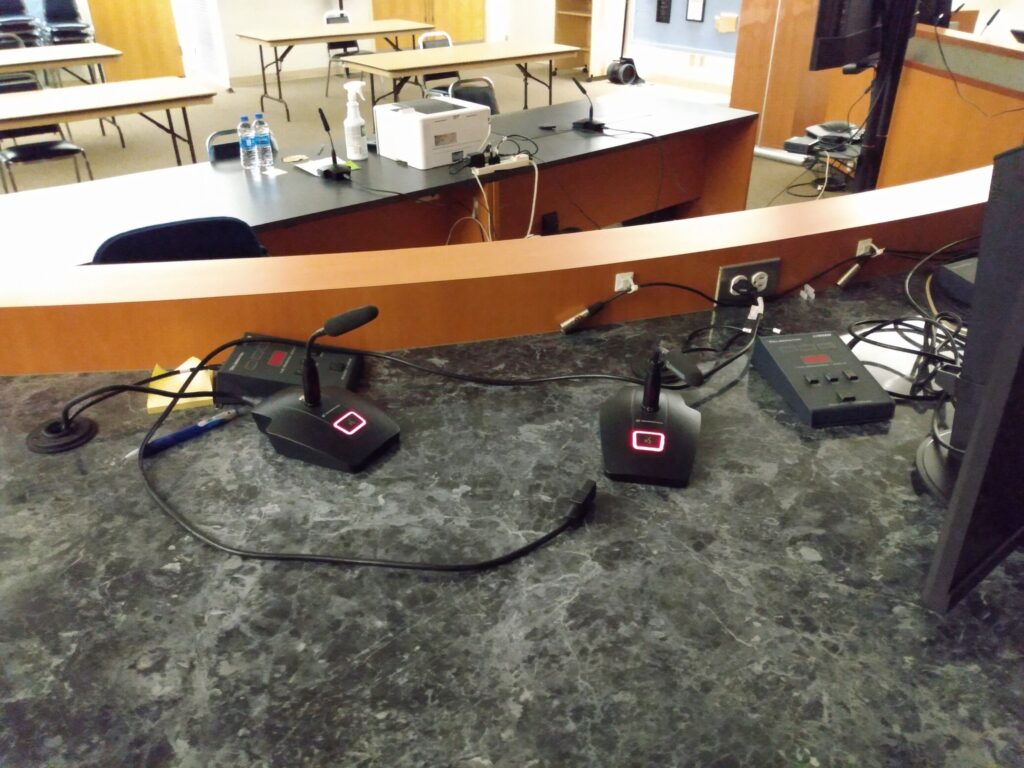
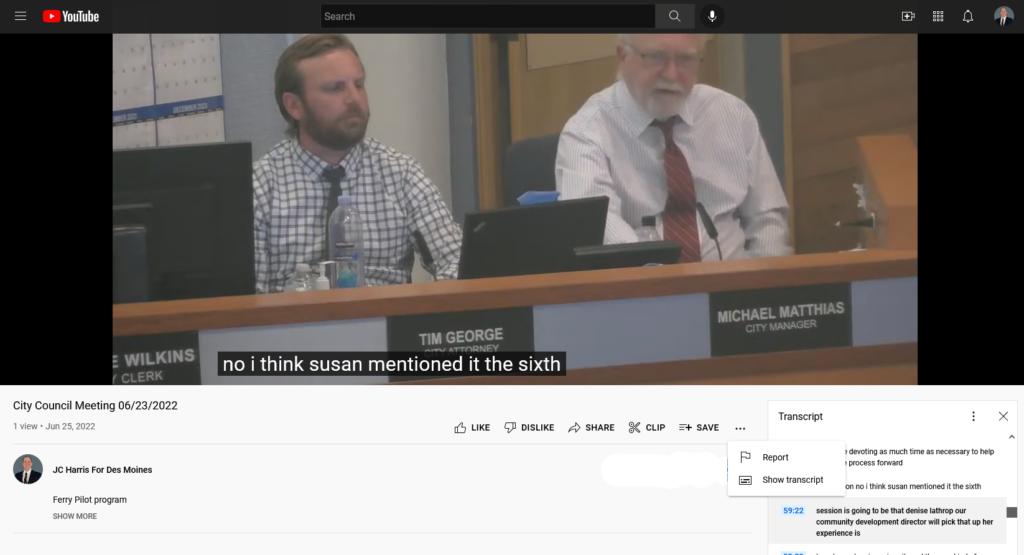

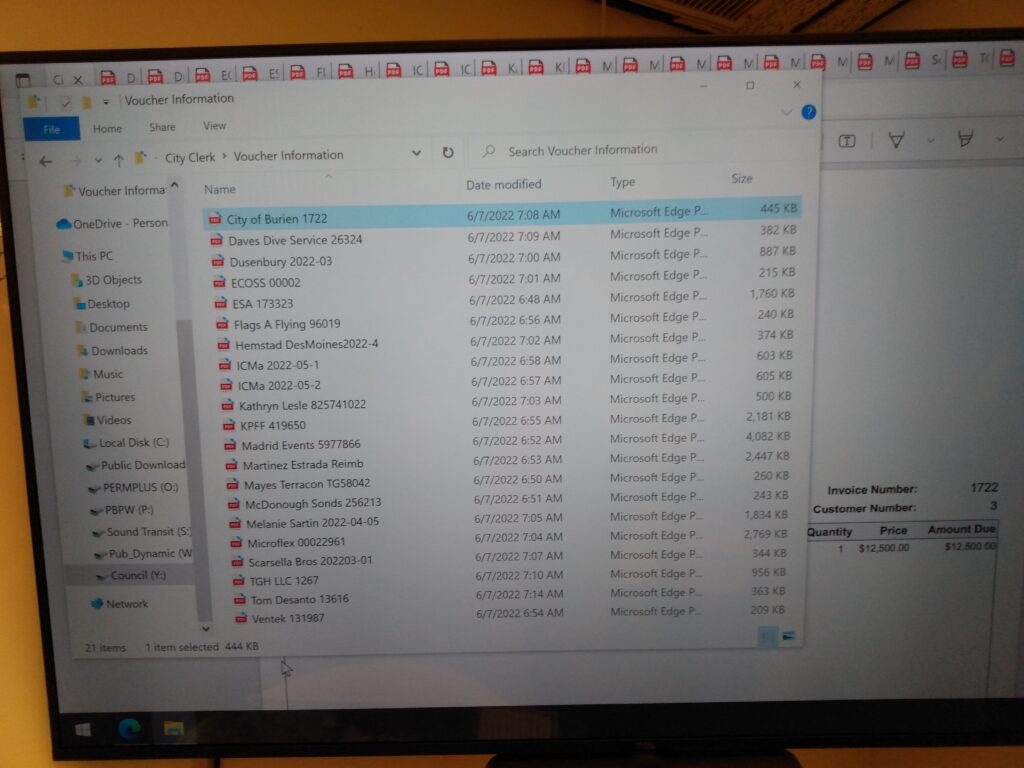
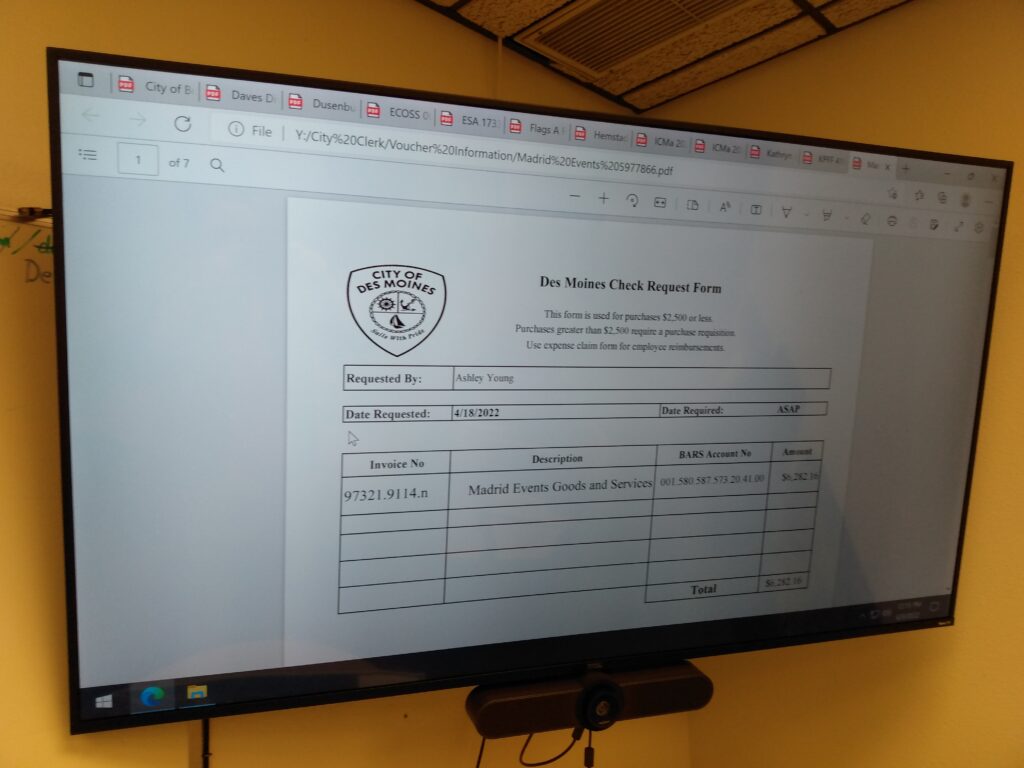

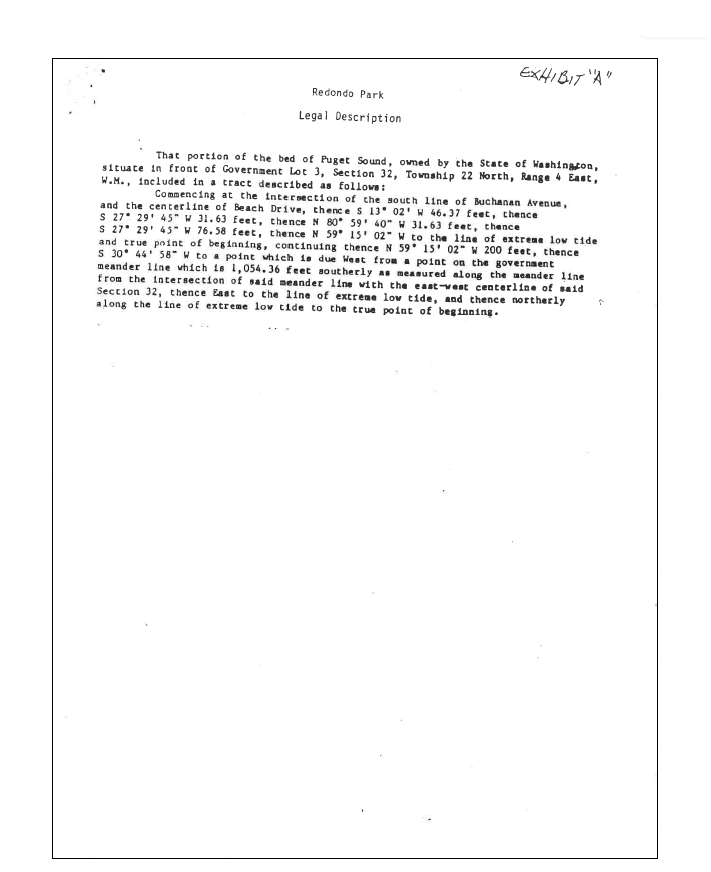
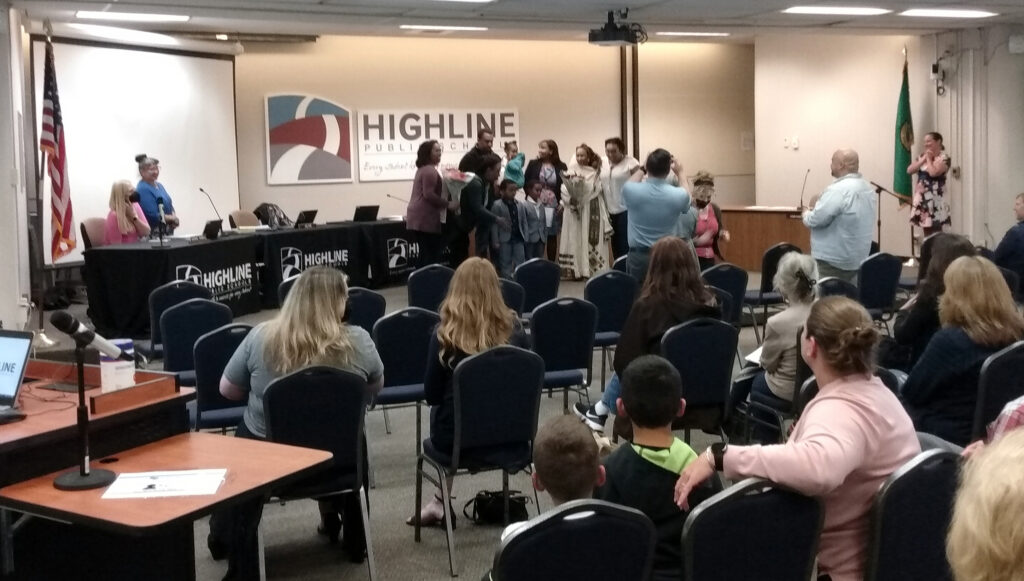
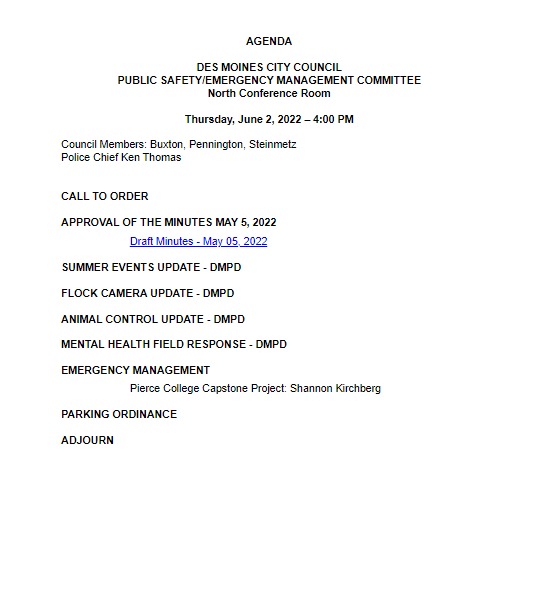
There are three ways to provide Public Comment:
All letters or e-mails requesting a specific action are referred by the City Clerk to the appropriate City department.
If you would like a follow up from me, personally please indicate that or call me (206) 878-0578.
The Clerk does not read e-mails to the Council in full; only the subject line. However, we do see them as soon as you send them. Your comments are added to the Agenda Packet available on the City web site following each meeting.